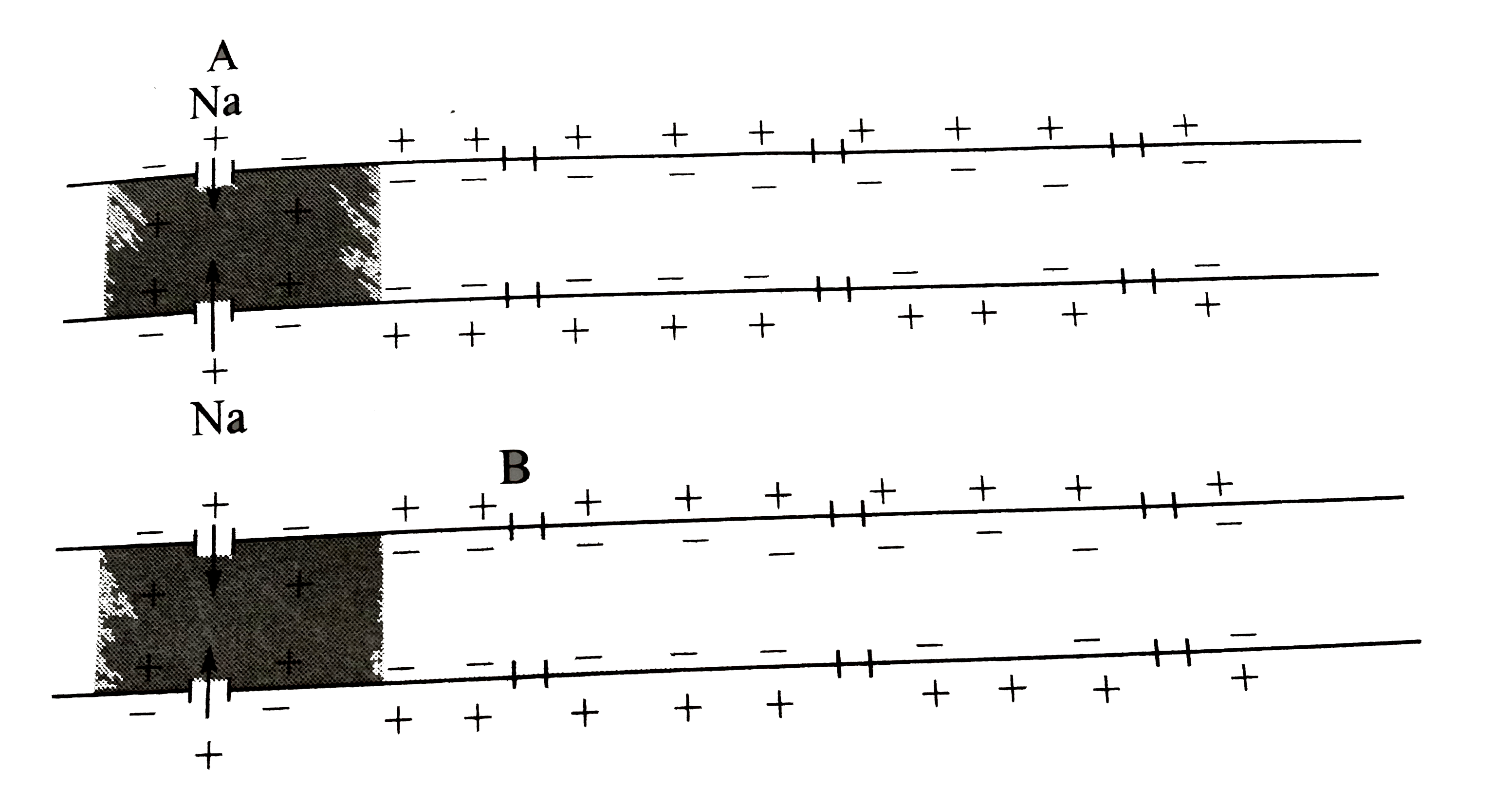The nature of nerve impulse conduction is
mechanical
thermal
electrochemical
chemical
Step-by-Step Solution:
1. Understanding Neurons:
- Neurons are the basic structural and functional units of the nervous system. They are responsible for transmitting nerve impulses.
2. Role of Neurotransmitters:
- At the end of a neuron, neurotransmitters are released. These are chemical messengers that facilitate communication between neurons.
3. Transmission of Nerve Impulses:
- The nerve impulse is transmitted in the form of an electric signal. This is crucial for the functioning of the nervous system.
4. Generation of Action Potential:
- When a nerve impulse is initiated, it generates an action potential. This action potential is essentially an electric potential that travels along the neuron.
5. Charge Distribution:
- During the conduction of the nerve impulse, there is a change in the distribution of positive and negative charges across the neuron's membrane, particularly in the axon.
6. Electrochemical Nature:
- The conduction of nerve impulses is described as having an electrochemical nature. This means that it involves both electrical signals (action potentials) and chemical signals (neurotransmitters).
7. Conclusion:
- Therefore, the nature of nerve impulse conduction is electrochemical, as it involves both electrical and chemical processes.
- Neurons are the basic structural and functional units of the nervous system. They are responsible for transmitting nerve impulses.
- At the end of a neuron, neurotransmitters are released. These are chemical messengers that facilitate communication between neurons.
- The nerve impulse is transmitted in the form of an electric signal. This is crucial for the functioning of the nervous system.
- When a nerve impulse is initiated, it generates an action potential. This action potential is essentially an electric potential that travels along the neuron.
- During the conduction of the nerve impulse, there is a change in the distribution of positive and negative charges across the neuron's membrane, particularly in the axon.
- The conduction of nerve impulses is described as having an electrochemical nature. This means that it involves both electrical signals (action potentials) and chemical signals (neurotransmitters).
- Therefore, the nature of nerve impulse conduction is electrochemical, as it involves both electrical and chemical processes.
Topper's Solved these Questions
- NERVOUS SYSTEM AND SENSE ORGANS : CONTROL AND CO-ORDINATIONBOOK - CENGAGE BIOLOGYCHAPTER - NERVOUS SYSTEM AND SENSE ORGANS : CONTROL AND CO-ORDINATIONEXERCISE - MANDATORY EXERCISE (EXERCISE SET II)
17 Videos
- NERVOUS SYSTEM AND SENSE ORGANS : CONTROL AND CO-ORDINATIONBOOK - CENGAGE BIOLOGYCHAPTER - NERVOUS SYSTEM AND SENSE ORGANS : CONTROL AND CO-ORDINATIONEXERCISE - CONSOLIDATED EXERCISE
66 Videos
- MENDELIAN INHERITANCEBOOK - CENGAGE BIOLOGYCHAPTER - MENDELIAN INHERITANCEEXERCISE - CHALLENGING EXERCISE
12 Videos
- NUTRITION IN PLANTS AND ANIMALS BOOK - CENGAGE BIOLOGYCHAPTER - NUTRITION IN PLANTS AND ANIMALS EXERCISE - CHALLENGING EXERCISE
4 Videos
Similar Questions
Knowledge Check
The nature of nerve impulse is
APhysicalBChemicalCElectrochemicalDBiophyicalAbsolute refractory period during nerve impulse conduction is the period of
ARepolarizationBDepolarizationCBoth repolarization and depolarizationDNeither repolarization and depolarizationAssertion :- Nerve impulse conduction is one way conduction.
Reason:- Neurotransmitters are only present at axon terminals.AIf both assertion and reason are true and reason is the correct explanation of assertion.BIf both assertion and reason are true but reason is not the correct explanation of assertion.CIf assertion is true but reason is false.DIf both assertion and reason are false.
Nerve impulse is conducted by,
View SolutionWhich set of ions is necessary for the nerve impulse conduction?
View SolutionWhich statement is correct regarding nerve impulse conduction?
View SolutionWhich of the following ions is/are responsible for biological functions such as maintenance of ion balance and nerve impulse conduction?
View SolutionDuring nerve impulse conduction, current flows

View Solution
